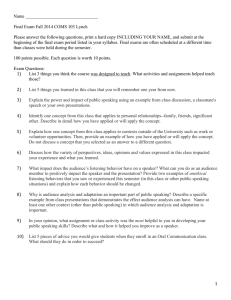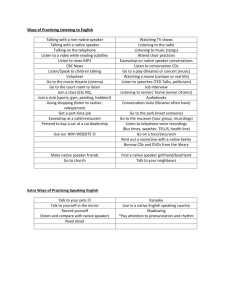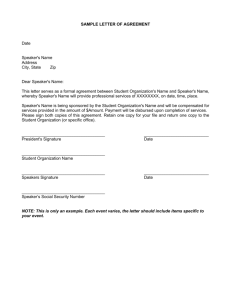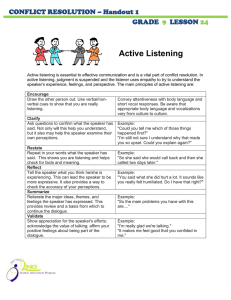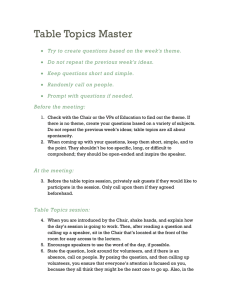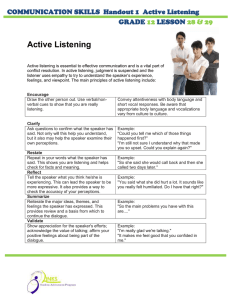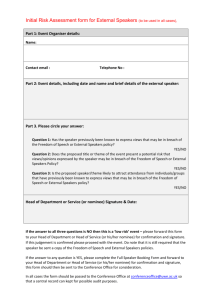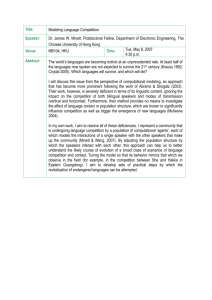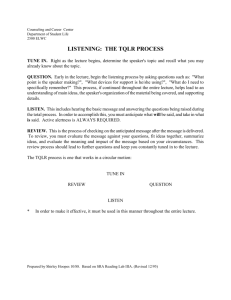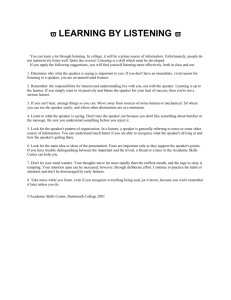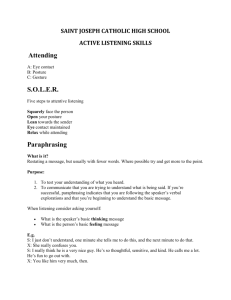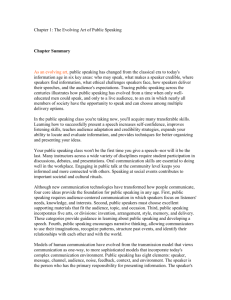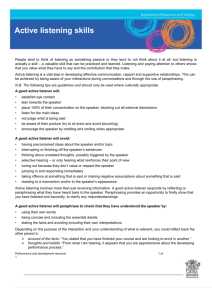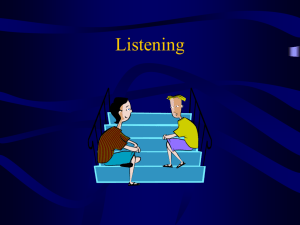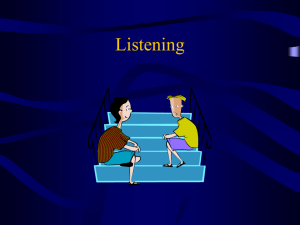Learning by Listening
advertisement
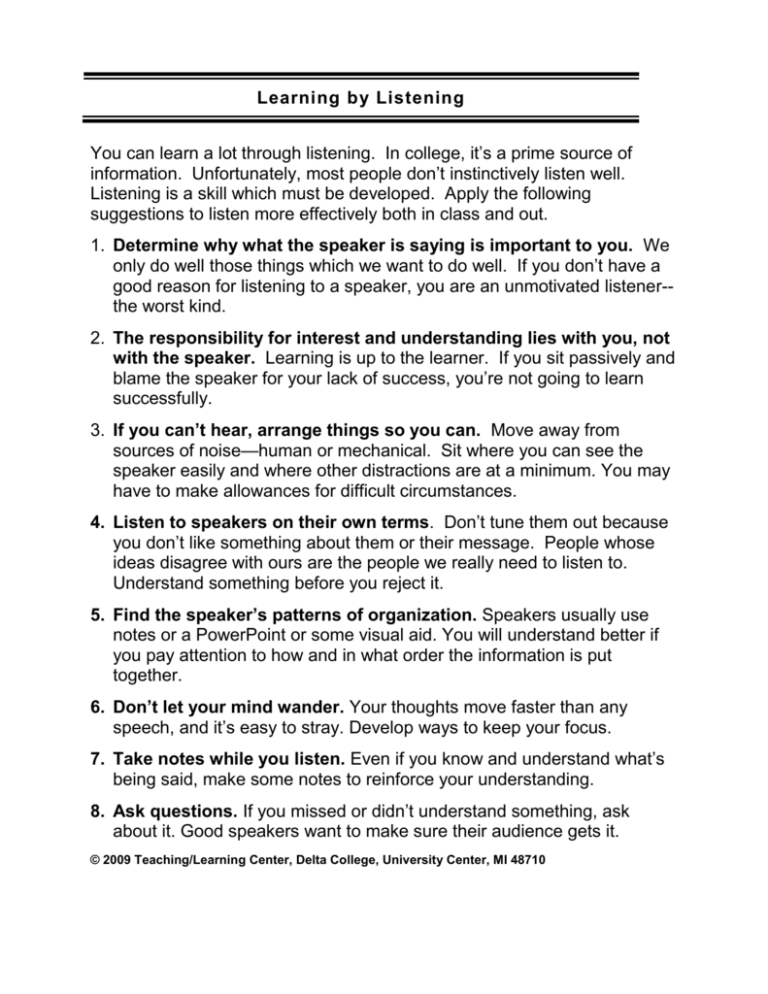
Learning by Listening You can learn a lot through listening. In college, it’s a prime source of information. Unfortunately, most people don’t instinctively listen well. Listening is a skill which must be developed. Apply the following suggestions to listen more effectively both in class and out. 1. Determine why what the speaker is saying is important to you. We only do well those things which we want to do well. If you don’t have a good reason for listening to a speaker, you are an unmotivated listener-the worst kind. 2. The responsibility for interest and understanding lies with you, not with the speaker. Learning is up to the learner. If you sit passively and blame the speaker for your lack of success, you’re not going to learn successfully. 3. If you can’t hear, arrange things so you can. Move away from sources of noise—human or mechanical. Sit where you can see the speaker easily and where other distractions are at a minimum. You may have to make allowances for difficult circumstances. 4. Listen to speakers on their own terms. Don’t tune them out because you don’t like something about them or their message. People whose ideas disagree with ours are the people we really need to listen to. Understand something before you reject it. 5. Find the speaker’s patterns of organization. Speakers usually use notes or a PowerPoint or some visual aid. You will understand better if you pay attention to how and in what order the information is put together. 6. Don’t let your mind wander. Your thoughts move faster than any speech, and it’s easy to stray. Develop ways to keep your focus. 7. Take notes while you listen. Even if you know and understand what’s being said, make some notes to reinforce your understanding. 8. Ask questions. If you missed or didn’t understand something, ask about it. Good speakers want to make sure their audience gets it. © 2009 Teaching/Learning Center, Delta College, University Center, MI 48710




